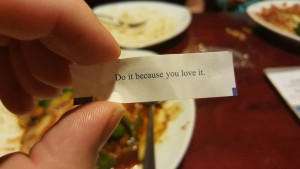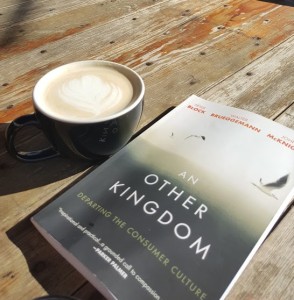I have been told that I speak in a tone that is very hard to hear. When I speak, I often have people ask me to repeat what I say when they don’t just politely stare at me with a quizzical countenance. Not being heard has created a great source of frustration in me. Exploring this challenge with those closest to me has returned suggestions to ‘speak up’, ‘talk in a higher tone’ or ‘be more assertive’. I have suggested that perhaps the challenge is not in the tone or the volume of my speech but in their ears. The suggestion is often discounted as ridiculous. The idea of “Active Listening” seems like an oxymoron . Listening is often associated as a passive activity where the person talking is providing information for a listener to consume.

While my auditory level may be a legitimate hindrance of people hearing what I have to say, some studies suggest that generally people only remember 25%-50% of what they hear. How many times have you found yourself missing what is being said because of distractions from thinking of your counterpoint, from technology or just not being present? I can recall leaving lectures, church services or even conversations with friends, hardly remembering the talking points. Thanks to email, Facebook, and other social media, if my phone is in my hands, there is a good chance that 25%-50% is a generous estimate for what I might recall from our conversation. Lecture sessions where the leader adopts the role of facilitator, asking good questions and encouraging dialogue generally increases my receptivity to what is said because rather than adopting the role of a passive spectator, I am invited to be an active participant engaged as a co-creator in the development communal ideas.
Common Change is reading and discussing ‘An Other Kingdom‘ by Peter Block, Walter Brueggemann and John McKnight in March and April of 2016. An Other Kingdom explores practices that create conditions for producing a social re-ordering from a consumer ideology toward a belief in neighborliness. Where the consumer mindset orients our thinking toward productivity, speed, entertainment and convenience, community practices create space where we can experience community differently. Practices of community are a “manifestation of… covenant, a belief in abundance, and ritual. Covenant is holding a relationship sacred. Traditionally, it meant with God or a higher power. Here it is about our relationships with neighbors and even strangers. It means holding community and the commons sacred; it requires honoring vows as an expression of both freedom and fidelity. Abundance faces the questions of our relationship to money, the right use of wealth, and the reconstruction of money and market, including forgiving our debts, reducing debt slavery, and limiting usury, making money on money. By ritual we mean the re-performance of a set of liturgy, memory, and story that brings into the present all that is held precious Remembering ourselves, putting limbs and body together, through common practices born of knowledge of what it means to be human.”
‘An Other Kingdom’ highlights Silence and Listening as practices that orients our thinking toward beliefs in neighborliness and community.

“The practice of listening brings people together. It reminds us that we are not alone. When people gather, the right questions bring the sacred into the room-questions of connections, not opinions. If you bring questions of depth, questions that are personal, the experience of being together shifts. When we ask questions that are an invitation to hear each other, something is created. How do you construct ways to listen to each other? One is to present questions that evoke profound speech versus just talk. Any time you ask a question that results in a list, nothing is going to happen. Questions of analysis are interesting but not powerful.”
Asking the right questions creates space for people to come together and hear each other. They evoke a sense of commitment. What are powerful questions? Questions that have power can change thinking by creating space for people to listen to each other , to choose accountability and to take action. Peter Block explains that powerful questions demand engagement through being “ambiguous, personal and stressful.” Powerful questions are powerful because we have decided to trade in advice and problem solving for being curious. Advice and problem solving presume that I have the answers to solve your problems even though I may not understand your context. When I get curious and ask powerful questions, I create space for me to listen and understand where you are and where you are going. Powerful questions also provide an opportunity for community to be built because I treat you as equal in a conversation, not as an object of my advice.
I find irony in that we live in a time that that is described as “connected” in ways that that no generation has experienced before, yet the experiences of loneliness and isolation seems to be at an all time high. Some studies suggest that loneliness can increase our chance of premature death by as much as 30%. I see so much of our world seems to be geared toward privatization (isolation) and convenience it seems at times too difficult to engage in practices of community:
- We move for jobs, taking us out of a sense of place and connection to our history
- We commute and work long hours only to return home, shut the garage and spend a few hours with our children just to wake up the next day and do it again, never finding the time to know our neighbors
- It is easier to complain on Facebook or to call the police on neighbors who park on the wrong side of the street or who’s dog is barking too long rather than to make a friend and treat each other as human beings
- We shop for churches that meet our entertainment preferences or that provide the right goods and services; forgoing relationships when the church fails to meet our consumer preferences
- We view money as a taboo topic to discuss in community and consequently it serves as a source of shame and isolation for both those that fail to manage it well and those who have an abundance of it
I am looking for space to replace isolation with community. Being intentional and curious is a good place to start to find an alternative to the addictions of privatization and convenience.
What crossroad do you find yourself? What would it look like to begin to engage in practices of community?
No Fields Found.
